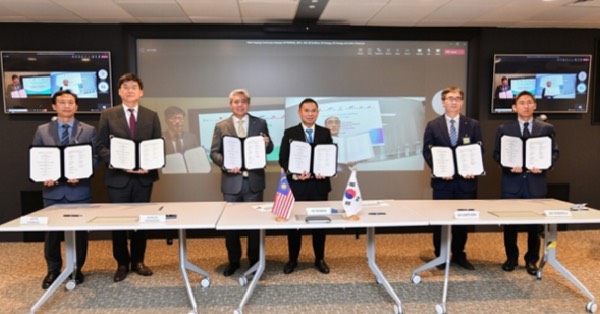
The global investment in carbon capture, utilization and storage (CCUS) is increasing in an attempt to reach carbon neutrality by 2050. Under the circumstances, South Korea with few carbon storage spaces and Southeast Asia, which is highly dependent on fossil fuels, are expanding their cooperation based on matching interests.
Malaysia’s state-run Petronas signed a memorandum of understanding on Aug. 3 with Samsung Heavy Industries, Samsung Engineering, Lotte Chemical, GS Energy, SK Energy and SK Earthon. The MOU is to launch the Shepherd CCS Project, which is to capture carbon in South Korea and store it in Malaysia. The project site is Sarawak and feasibility studies will be initiated soon.
POSCO Engineering & Construction, POSCO International and Petronas signed the same MOU earlier so that Malaysia can become a carbon storage hub based on the CCUS technology POSCO Group is developing. In addition, SK E&S and PGN signed an MOU in Indonesia for joint CCS research.
These days, Southeast Asian countries are increasing their CCUS investments fast. At present, a total of seven countries, including Brunei, Singapore, Indonesia and Malaysia, are moving ahead with CCUS projects in the region. This is because the region is highly dependent on coal, oil and natural gas. If they reduce the carbon from their fossil fuel-based power generation facilities using CCUS, they do not have to shut down the facilities in the near future.
The cooperation can be linked to hydrogen, a next-generation energy source. LNG development projects are underway in Indonesia, Malaysia, etc. and hydrogen production from LNG leads to carbon generation, which requires the CCS technology for carbon capture and underground storage for later utilization.
Source: BusinessKorea








































